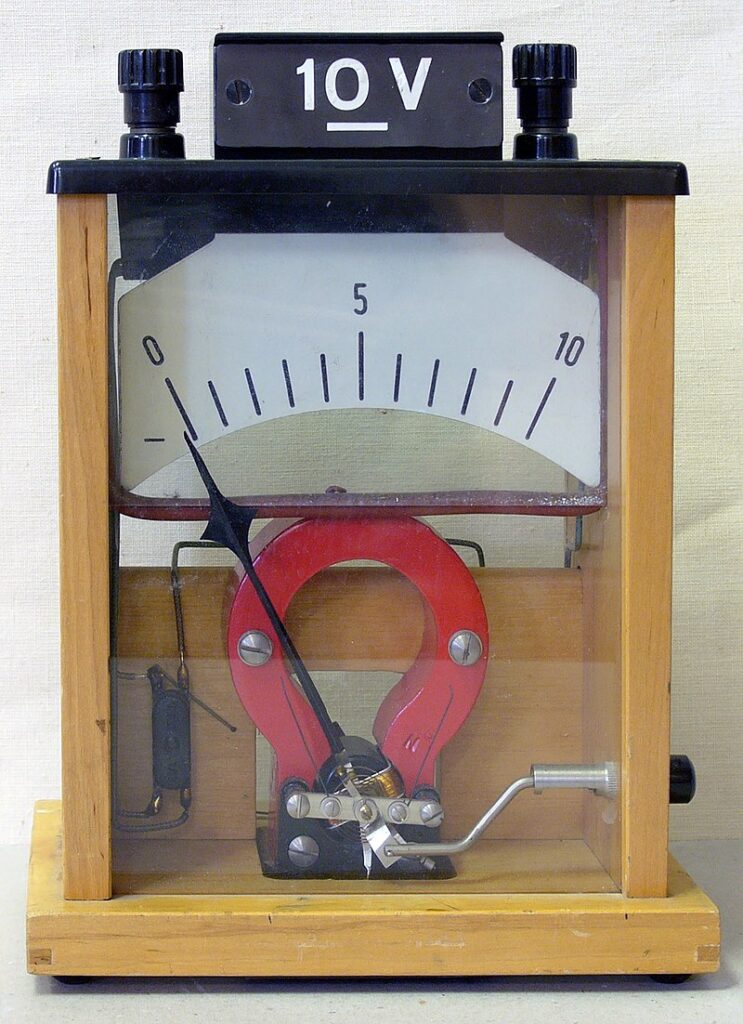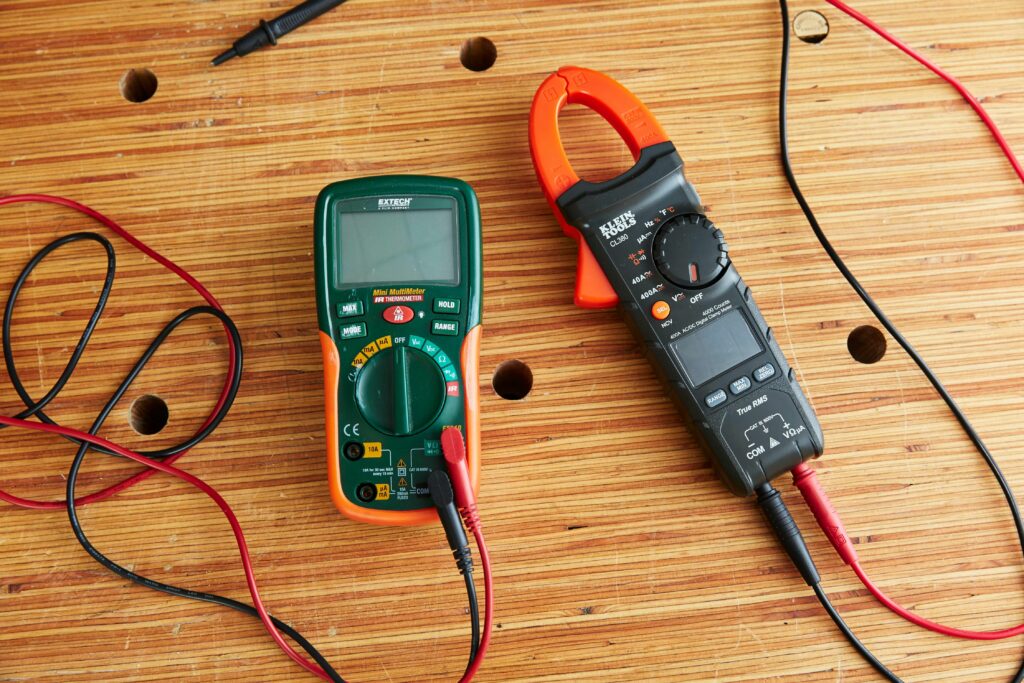In the realm of electrical measurements, two fundamental tools stand out: voltmeters and multimeters. While both instruments are used to measure voltage, they serve distinct purposes and offer unique features that cater to different needs. In this comprehensive blog post, we will delve deep into the differences between voltmeters and multimeters, shedding light on their individual strengths, applications, and how they contribute to efficient electrical testing and troubleshooting.
Voltmeters: The Voltage Measurement Specialists
Voltmeters are specialized instruments designed primarily for the measurement of voltage, which is the potential difference between two points in an electrical circuit. They come in various forms, including analog and digital voltmeters, and serve a critical role in electrical engineering, electronics, and physics experiments.
Analog Voltmeters: Analog voltmeters provide continuous voltage readings through a pointer on a scale, making them ideal for applications where precise values are not required. They offer excellent sensitivity and are often used in laboratory setups for experimental work. However, their limitations lie in accuracy, as reading analog scales can introduce parallax errors.

Digital Voltmeters: Digital voltmeters, on the other hand, display voltage readings as numerical values on a digital screen. They are known for their accuracy, precision, and ease of use. Digital voltmeters can measure both AC (Alternating Current) and DC (Direct Current) voltages, making them versatile tools for various applications.
Applications of Voltmeters: Voltmeters are primarily used for:
- Monitoring power supply voltages.
- Troubleshooting electrical circuits to detect voltage drops.
- Measuring voltage levels in electronics and electrical appliances.
- Analyzing voltage waveforms and harmonics in power systems.
Multimeters: The All-in-One Electrical Measurement Solution
Multimeters, as the name suggests, are multifunctional instruments that combine various measurement capabilities into a single device. They can measure not only voltage but also current, resistance, and sometimes additional parameters like capacitance, frequency, and temperature. Multimeters come in analog and digital versions, catering to different user preferences and requirements.
Analog Multimeters: Analog multimeters feature a rotating needle or pointer on a scale and provide readings for voltage, current, and resistance. They offer the advantage of measuring multiple parameters in one device but are less precise than their digital counterparts. Analog multimeters are well-suited for quick measurements in the field.
Digital Multimeters: Digital multimeters, often referred to as DMMs (Digital Multimeters), have become the standard for electrical testing and troubleshooting. They offer precise and accurate measurements of voltage, current, resistance, and other parameters. DMMs typically come with a clear digital display, auto-ranging capabilities, and additional features like data logging and connectivity options.
Applications of Multimeters: Multimeters are versatile tools used for a wide range of tasks, including:
- Checking voltage levels in circuits.
- Measuring current flow in circuits (both AC and DC).
- Determining resistance values in components.
- Troubleshooting electrical problems, such as short circuits and open circuits.
- Evaluating diode and transistor characteristics.
- Assessing capacitance and frequency in electronic circuits.
Key Differences between Voltmeters and Multimeters
Now that we have introduced both voltmeters and multimeters, let’s highlight the key differences between these two essential electrical measurement tools:
Functionality:
- Voltmeters are specialized instruments designed exclusively for voltage measurement.
- Multimeters are multifunctional devices capable of measuring voltage, current, resistance, and additional parameters.
Display:
- Voltmeters display voltage readings, typically as analog needle movements or digital numerical values.
- Multimeters offer a broader range of displays, showing measurements for voltage, current, resistance, and other parameters, all on the same screen.
Accuracy:
- Digital voltmeters and digital multimeters are known for their high accuracy and precision.
- Analog voltmeters and analog multimeters are generally less accurate due to potential parallax errors and limited resolution.

Versatility:
- Voltmeters are ideal for specific voltage measurement tasks, making them less versatile than multimeters.
- Multimeters are versatile tools capable of handling various electrical measurements, making them a go-to choice for electricians and engineers.
Cost:
- Voltmeters, especially analog versions, tend to be more affordable than multimeters.
- Multimeters are relatively more expensive due to their additional measurement capabilities and advanced features.
- When to Use Voltmeters and Multimeters
The choice between using a voltmeter or a multimeter depends on the specific requirements of your electrical measurement task:
Use Voltmeters When:
- You need precise voltage measurements without the distraction of other parameters.
- Monitoring power supply voltages in electrical systems.
- Analyzing voltage waveforms and harmonics.
- Working on specialized experiments in laboratories.
Use Multimeters When:
- You require multiple electrical measurements, including voltage, current, and resistance.
- Troubleshooting electrical circuits for various faults.
- Checking the health of electronic components like diodes and transistors.
- Measuring resistance and continuity in wires and components.
- Evaluating capacitance, frequency, or temperature in electronic circuits.
In the world of electrical measurements, voltmeters and multimeters are invaluable tools, each with its distinct strengths and applications. Voltmeters excel at providing accurate voltage readings, making them suitable for tasks that demand precision. On the other hand, multimeters offer a versatile solution for electricians, engineers, and hobbyists who need to measure a range of electrical parameters conveniently.
Ultimately, the choice between a voltmeter and a multimeter depends on your specific needs and the nature of your electrical work. Whether you are troubleshooting circuits, conducting experiments, or maintaining electrical systems, having a clear understanding of these instruments’ capabilities and differences will help you make informed decisions and ensure accurate measurements in your electrical endeavors.
Updated on January 4, 2024 by Joe Kaminski